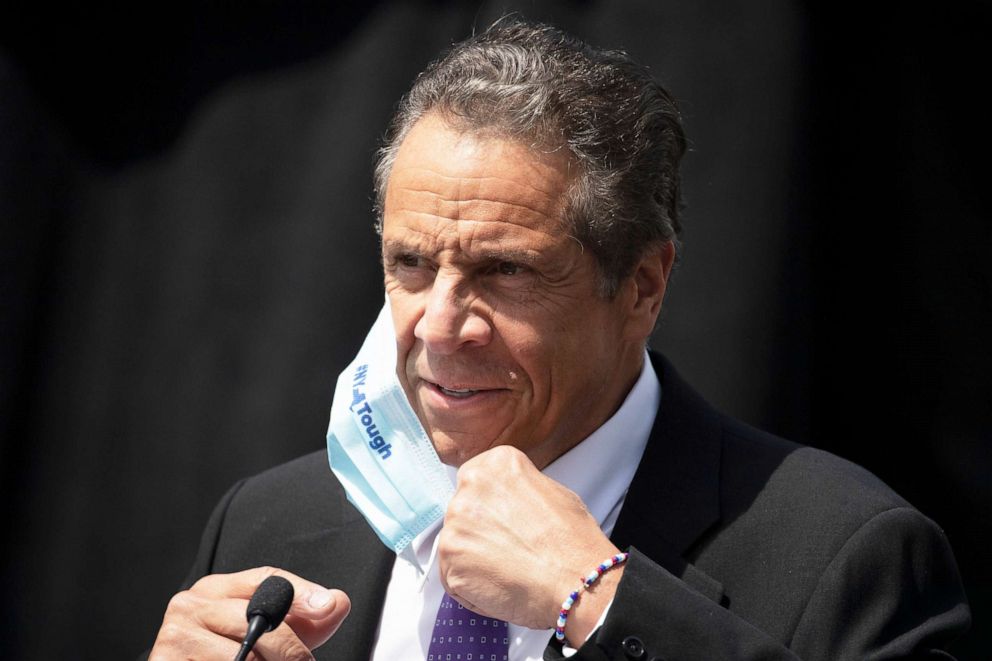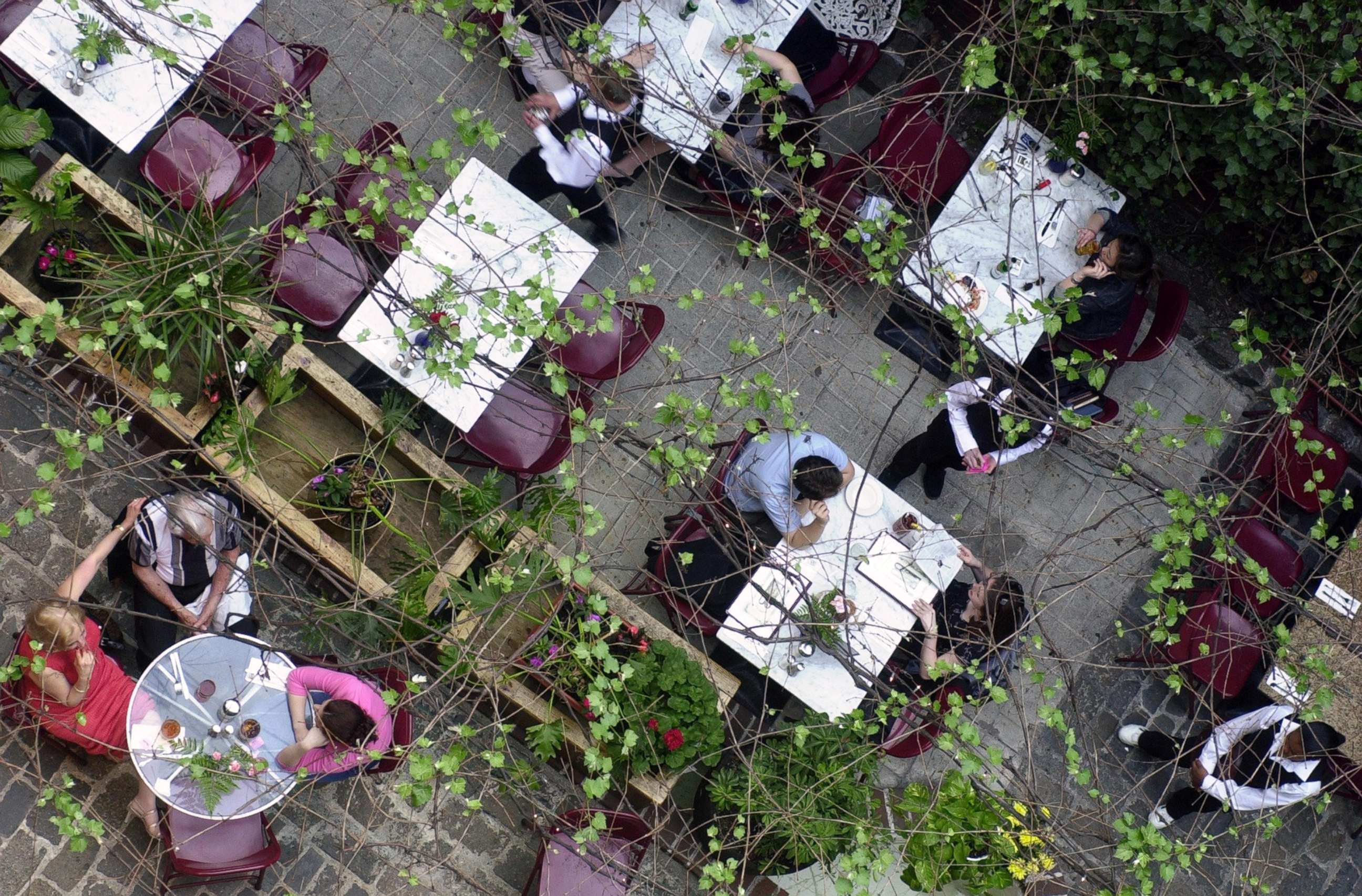NYC restaurant and State Liquor Authority square off in lawsuit over COVID crackdown
A Manhattan cafe has sued, claiming its liquor license was unfairly suspended.
A Manhattan café that was raided by police and found to be violating social distancing laws earlier this month is suing the State Liquor Authority for suspending its license.
In a lawsuit filed on Monday, the Cloister Café, located in the city's East Village, claims the State Liquor Authority did not follow due process in deciding to suspend its license. It also claims the decision to conduct a raid was based on social media posts that did not accurately reflect the situation at the premises. The State Liquor Authority has called these claims "demonstrably false."
The city's phase 4 regulations banned indoor gatherings of more than 50 people, and said that anyone who attends a properly sized event must adhere to health department guidelines on social distancing and mask-wearing.
When police conducted a raid of the Cloister Café on Aug. 7, they said over 50 people were found on the premises drinking and mingling without properly adhering to social distancing laws. Police claim patrons informed them they had paid up to $5,000 for a table at the venue that evening.

Robert Garson, the attorney representing Nicholas Drobenko, the owner of Cloister Café, appeared in court Wednesday seeking a temporary restraining order that would allow the café to reopen.
"There is an ongoing irreparable harm,” said Garson, who is arguing for the café's liquor license to be reinstated and to receive compensation for lost revenue.
In the lawsuit, it is alleged that the raid and investigation into Cloister Café was done mainly on the basis of reposted Instagram videos from patrons that had tagged the location on previous evenings.
However, law enforcement sources have told ABC News that the raid was conducted due to "numerous" 311 complaints.
The State Liquor Authority also strongly refutes the claims made in the lawsuit, stating: "any claim that Cafe Cloister's summary suspension was based on social media posts or media accounts is demonstrably false."
"The only thing guiding our investigations is a mandate to protect public health and the actions of bar owners -- rather than trying to divert attention through baseless claims, this licensee should take responsibility for their actions," a spokesman added.
The Attorney General's Office argued Wednesday the restrictions and punishment were within the rights of the state.
"We are mystified as to why we have to be in federal court," said James Cooney, director of emergency litigation for the New York Attorney General’s Office. "We are doing things in our city and our state to stop or ameliorate the spread of COVID and that’s what the State Liquor Authority has done here."

This appears to be the first time a restaurant has tried to retaliate in federal court against state authorities enforcing pandemic-related social distancing rules.
"The stakes are high," Judge Lewis Kaplan said. "The question is in a perfectly lawful desire to prevent this pandemic from doing more damage to New York has a constitutional line been crossed?"
The judge agreed to take under advisement the restaurant’s request for a temporary restraining order that would suspend the suspension of the liquor license and, effectively, allow Cloister Café to resume operating. No ruling was made on Wednesday.
In the lawsuit, the café claims it did take proper precautions and twice passed safety inspections by the New York Sheriff's Office between July 11 and Aug. 1.
"In addition to following government directives relating to table spacing, mask distribution, social distancing, Cloister Café installed equipment to further increase airflow and circulation, including multiple exhaust and ventilation systems with filters," the plaintiff writes in the lawsuit.
The Cloister Café's lawsuit is part of a backlash from businesses and promoters who see the state's efforts to crackdown on illegal parties as heavy handed. Nearly 150 businesses in the state have had their liquor license suspended since Gov. Andrew Cuomo threatened to yank licenses on June 18 to incentivize compliance with his emergency orders. That figure includes 13 New York City businesses that had their licenses revoked last weekend.
Last Saturday, officers with the New York City's Sheriffs Office raided two different raves in Brooklyn, sending nearly 300 revelers home and arresting four men found to be promoters or organizers of the events.
While businesses and promoters continue to rail against the restrictions, they are justifiable from a legal standpoint, said Richard Briffault, a professor of state and local government law at Columbia Law School.
"These orders are pretty consistent with powers a governor or mayor has to take -- steps to protect public health," he told ABC News. "There is no fundamental right to party."




